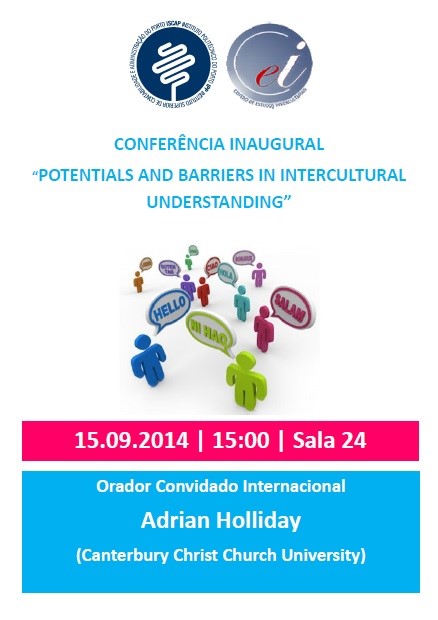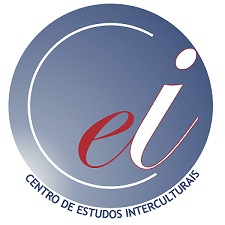15 September 2014 | 15.00 | Sala 024, ISCAP
ABSTRACT
I will look at how the underlying universal cultural processes which we all share provide the basis for intercultural understanding and travel. However, these same processes can also lead us into divisive discourses of culture which pull us apart, and create prejudice and illusions of cultural incompatibility.
Bionote
Adrian Holliday is in the Department of English & Language Studies at CCCU, where he directs the PhD in Applied Linguistics. He is also Head of The Graduate School, where he provides academic management for research degrees across the University. This site describes his academic profile and work – my ideas, publications and activities. It represents a history of his career, which began in English language education in Iran the early 1970s, and has travelled through engagements with a global cultural politics to arrive at current interest in the ideological underpinnings of intercultural communication. This trajectory has also taken in a fascination with the everyday complexities of social life and how to investigate them through sociology and qualitative research. This has recently been traced to early inspirations as an undergraduate student of sociology. He began his career as a teacher of English, History, Economics and Sociology at North Romford Comprehensive School in London, where, in 1972, he wrote a course in sociology. He then went to Iran in 1973 as a teacher of English at the British Council Centre in Tehran, and then managed a small British Council curriculum unit in Ahwaz and designed technical English programmes for oil company technicians and engineers. After his masters degree at Lancaster University, between 1980 and 85 he was instrumental in setting up the English for Special Purposes Centre at Damascus University. This is now the successful Higher Languages Institute. Between 1985 and 90 he was involved in a national university curriculum project in Egypt. Located at the Centre for Developing English Language Teaching (CDELT), Ain Shams University, this took in 18 universities across the country. This project provided experience of the global politics of English and ethnographic material which became his PhD thesis at Lancaster in 1990. While at Canterbury Christ Church University, in the late 1990s he was involved in regulating and accrediting British English language teaching qualifications across the university and private sectors. As Chair of the British Association of TESOL Qualifying Institutions (BATQI), he was instrumental in setting up the then British Institute of English Language Teaching (BIELT). Throughout his career, with a clear trajectory from his undergraduate days as a student of sociology, he has been developing his thinking and writing around the relationship between the individual, culture and social structures. His long-standing relationship with Iran and the Middle East more generally has provided him with an acute awareness of the global politics which surround these relationships, and of the profound lack of Western understanding of non-Western realities despite the massive proliferation of global information and communication.


